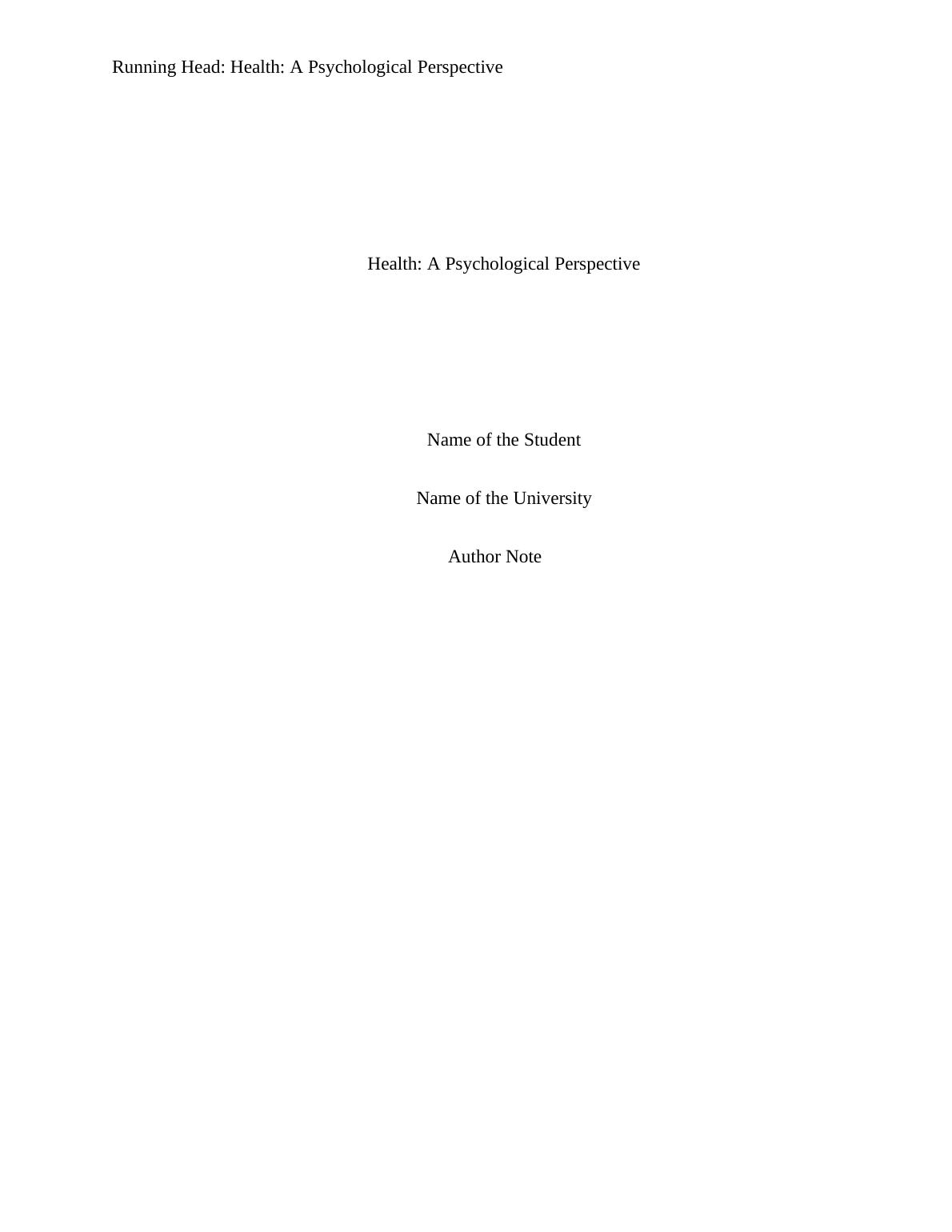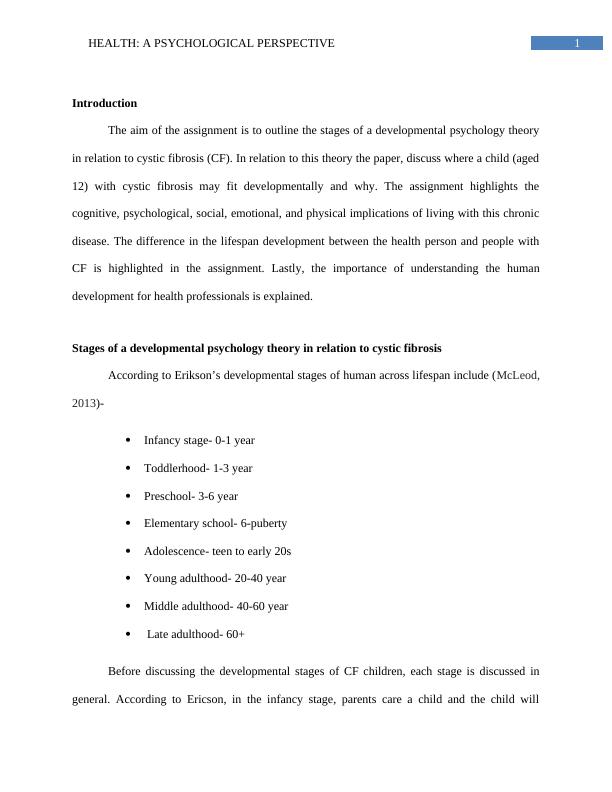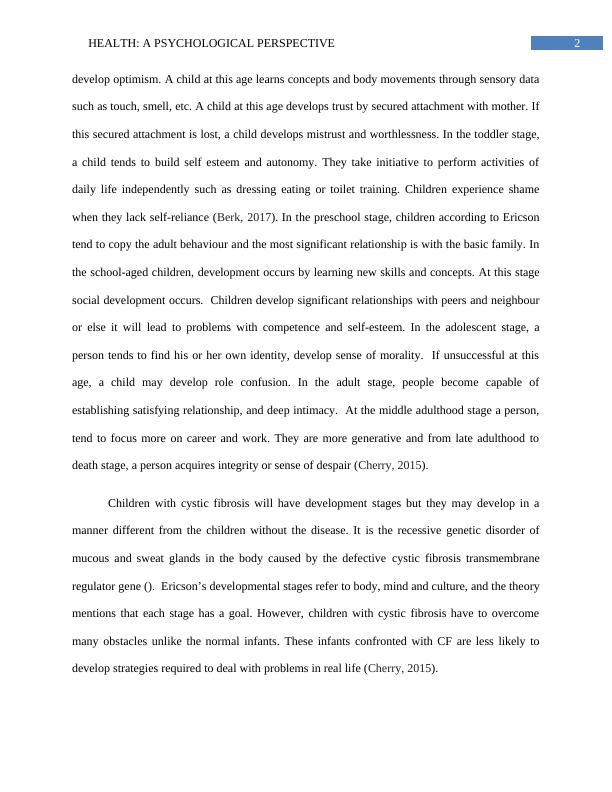Assignment on Psychological Perspective Health
9 Pages2157 Words88 Views
Added on 2020-04-07
Assignment on Psychological Perspective Health
Added on 2020-04-07
ShareRelated Documents
End of preview
Want to access all the pages? Upload your documents or become a member.
Human Development Across the Lifespan
|8
|2053
|361
The Developmental Stages Across Lifespan | Essay - Desklib
|8
|2084
|188
Developmental Evaluation And Screening
|3
|423
|20
Human Development Across the Lifespan
|7
|1625
|393
Comparative Study of Erikson's Psychosocial Theory and Maslow's Hierarchy of Needs
|8
|1818
|312
Psychology For In Health And Social Care
|14
|4044
|52



